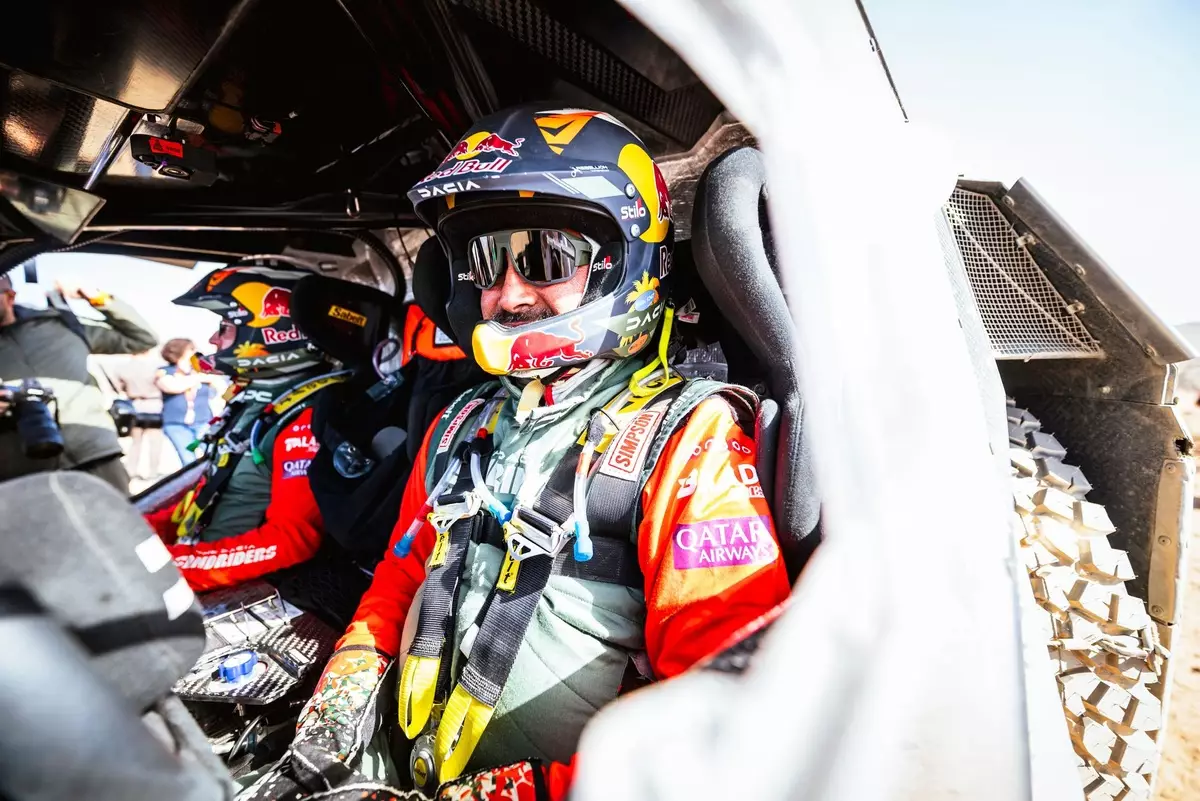The Dakar Rally, known for its grueling terrain and relentless competition, often becomes a battleground not just for drivers but also for the regulatory bodies overseeing the event. Recent decisions by the Fédération Internationale de l’Automobile (FIA) have sparked a heated debate within the motorsport community, particularly highlighted by the reactions of Dacia driver Nasser Al-Attiyah. After witnessing the premature exits of notable competitors like Carlos Sainz Sr. and Sebastien Loeb, questions regarding the FIA’s safety protocols and overall fairness have surfaced, adding a layer of complexity to this year’s rally.
This year’s Dakar unfolded dramatically when FIA officials denied Carlos Sainz Sr. the chance to continue after his vehicle suffered damage to its roll cage. Al-Attiyah criticized the FIA, asserting that the rules surrounding vehicular repairs during the rally were vague and inconsistent. According to FIA representatives, their decision was rooted in concerns regarding driver safety in the event of future accidents. However, this line of reasoning did not sit well with Al-Attiyah, who argued that the nature of cross-country racing allows for recuperative measures that could enable Sainz to safely resume competition.
Al-Attiyah’s perspective illustrates a broader concern about the balance between ensuring competitor safety and maintaining the spirit of the race. He expressed a desire to race alongside prominent figures like Sainz and Loeb, emphasizing camaraderie in motorsport and the intrinsic desire to compete against top rivals. His contention that the FIA’s decision has effectively diminished the competitive landscape is significant; he believes that the integrity of the race is at stake.
Adding fuel to the fire of controversy was Al-Attiyah’s experience during Stage 5, where he incurred a hefty ten-minute penalty for losing a spare wheel. The narrow margins of victory in close races make such penalties particularly contentious. Al-Attiyah’s assertion that he did not intentionally lose the tire and that it was a minor oversight raises pertinent questions about fairness in competitive sports. He has vowed to approach FIA President Mohammed ben Sulayem to contest the penalty, arguing that the integrity of competition ought to prevail over punitive measures that seem overly harsh.
Al-Attiyah’s frustration echoes a sentiment shared by many participants in high-stakes competitions where small errors can lead to significant setbacks. The Dakar Rally, characterized by its unforgiving environment where every decision is magnified, necessitates a more nuanced approach to rulings and penalties. A sense of balance is crucial, where rules protect competitors without compromising the competitive spirit inherent to motorsports.
Currently positioned fourth overall and 30 minutes behind rival Henk Lategan, Al-Attiyah faces an uphill battle as the rally continues. Yet, despite this deficit, the Qatari driver remains resolutely optimistic, exuding confidence in his abilities to bridge the gap between himself and the leaders. With six stages still to navigate, his assertion that he remains a contender for another Dakar victory speaks to his experience and determination.
Al-Attiyah’s ambitions also tie into the legacy of Dakar Rally greats like Stéphane Peterhansel, from whom Al-Attiyah aims to draw inspiration as he pursues an eighth title in the car category. The mental fortitude displayed by seasoned competitors can often be as crucial as their technical skills, especially in a grueling competition where the terrain tests not only the vehicles but also the drivers‘ resolve.
The challenges faced by competitors during the Dakar Rally extend beyond the physical demands of the race; they also encompass navigating the intricate web of regulations set forth by the FIA. As the narrative unfolds, it becomes imperative for regulatory bodies to ensure that their guidelines foster both safety and fair competition. The dialogues initiated by drivers like Al-Attiyah are essential in shaping a future where competitive integrity is prioritized without compromising the safety of all participants.
The Dakar Rally is not merely a contest of speed and endurance; it is a complex interplay of strategy, skill, and adherence to rules that govern the race. As the current edition progresses, the voices of seasoned competitors will be crucial in advocating for regulatory clarity, upholding the integrity of the race while ensuring the safety of every driver on the unforgiving Dakar terrain.


Napsat komentář